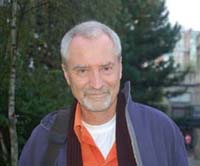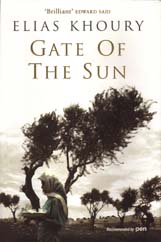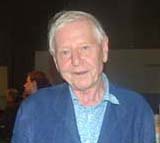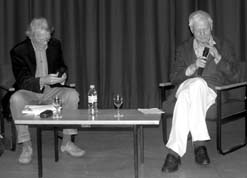The 2006 Saif Ghobash Banipal Prize for Arabic Literary Translation
The inaugural winner
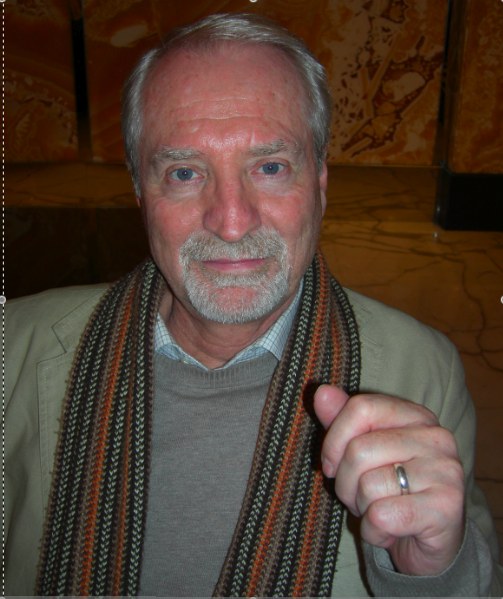
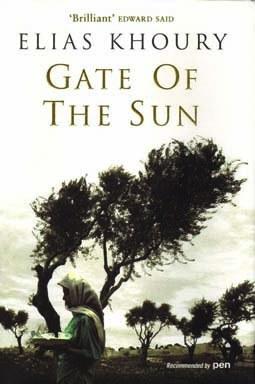
The first Banipal Prize for Arabic Literary Translation was awarded unanimously by the judges to Humphrey Davies, for his translation of Elias Khoury’s Gate of the Sun, published in the UK by Harvill Secker and in the USA by Archipelago Press.
After being told of his award, Humphrey Davies said: “The initial draft of Elias Khoury's Gate of the Sun took me some eight weeks of full-time work during the summer of 2004, part of it in Alexandria. By good luck, the author was in Alexandria briefly during the same period and he and I spent one nine-hour session reviewing my queries. Such contact with the author is, I believe, extremely important; to date I have been fortunate enough to be able to consult almost all the living authors whose works I have translated (I have questions for the dead too, when I meet them).
“Winning the Banipal Prize (my first, though the same work received financial support from English PEN’s competitive Writers in Translation programme) represents for me, primarily, recognition of the novel itself. Gate of the Sun is a work of extraordinary strength that non-Arabic readers need to have available. I am doubly happy that, in translating it, I have helped to put before the reader of English so compelling an account of the dispossession of the Palestinians.”
In learning of the judges’ decision, Honorary President of the Banipal Trust for Arab Literature Peter Clark said that this first award of the Banipal Translation Prize was a memorable event in the reception of contemporary Arabic literature in English.
He went on: “Since the award of the Nobel Prize for Literature to the late Naguib Mahfouz in 1988, the English-language reading world has been made aware that there is a rich store of contemporary writing in Arabic. Good translators have been few and those few need encouragement. Now, thanks to the Banipal Trust and the enlightened generosity of Mohammad Ahmad Al-Sowaidi, Arabic literature in translation is getting the recognition and reward enjoyed by some of the other global literary languages. A new generation of translators of modern Arabic is emerging, and this prize is one factor of several that will make the next generation of readers far better informed about modern Arab creativity than their predecessors.”
• The Prize’s Patron for its first year, Mohammad Ahmad Al-Sowaidi, congratulated the winning translator, adding that he believed the literary translator was a lynch-pin in the process of cultural dialogue. Himself an arts patron and publisher, based in Abu Dhabi, he is keenly interested in developing cultural and literary dialogue between the Arab world and the West.
“Translation between Arabic and English”, Mohammad Ahmad Al-Sowaidi stated, “needs to be kept under the spotlight. I support this prize because we believe it is so important for developing dialogue with Arabic culture and literature. Arabic literature needs this prize, this attention. We believe that Banipal and their work provide a real bridge between Arabic culture and language and English language and culture. We are sure that this prize will draw more and more attention in the coming years and are proud to have been here at its beginning.”
Author of Gate of the Sun Elias Khoury
The Judges’ Announcement
The judges, author Moris Farhi, literary journalist Maya Jaggi, and literary translator from Arabic and academic Roger Allen, were unanimous in their choice of Gate of the Sun as the winning translation. Speaking on their behalf, Maya Jaggi announced:
“The judges were unanimous in awarding the inaugural Banipal Prize for Arabic Literary Translation to Elias Khoury’s Gate of the Sun (Harvill Secker) translated by Humphrey Davies. Inspired by refugees’ accounts of the Palestinian expulsion of 1948 and its lingering aftermath, Khoury’s ambitious and richly crafted novel is an epic retelling of myriad individual stories through the central narrative of Khaleel, a doctor tending a comatose former Palestinian fighter in a refugee camp’s makeshift hospital on the outskirts of Beirut.
"Tracing the meshed histories of Lebanon and Palestine from the 1930s to the 1990s, and the multiple crossings of a once-porous border with the state of Israel, it subtly questions the nature of memory and history, literature and imagination, heroism and defeat. The novel is a monumental achievement, whose translation by Humphrey Davies brilliantly captures the nuances and style of the original.”
Runner-up
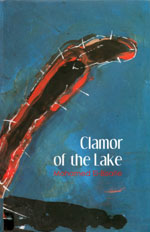
The judges further announced: “The runner-up is Mohamed el-Bisatie’s Clamor of the Lake (American University in Cairo Press), translated by Hala Halim. Set in a landscape in flux, where lake meets sea, this innovative novel is a haunting and tender evocation of place and the passing of time through the linked tales of humble lake dwellers, whether fishermen, traders or treasure-hunting beachcombers. Hala Halim’s translation superbly renders the original's lyricism and fluidity."
Clamor of the Lake by Mohamed el-Bisatie
Highly Commended
“Also highly commended was Edwar al-Kharrat’s Stones of Bobello (Saqi), translated by Paul Starkey.”
The Award Ceremony
9 October 2006University of East Anglia
The award to Humphrey Davies was made, together with five other translation prizes administered by the Society of Authors, at a ceremony hosted by the British Centre for Literary Translation at the University of East Anglia. Sir Peter Stothard, editor of the Times Literary Supplement presented the prizes for literary translation from Arabic, French, German, Italian, Spanish and Swedish.
The Sebald Lecture on Literary Translation entitled "The Peregrinations of Poetry" followed the presentations. This year, the poet Hans Magnus Enzensberger, a lifelong friend, editor and mentor of the late W G Sebald who founded the British Centre for Literary Translation in 1989, was in conversation with award-winning poet and translator David Constantine, editor of Modern Poetry in Translation. Enzensberger spoke about his relationship with "Max", as well as his own work as a writer whose life has been characterised by physical displacement, first to Norway, then to Cuba, and to the UK and the USA – in translation, it is not only the texts that move, but also the authors and translators.
A Reception in the new Sainsbury Gallery followed the lecture and presentations – a great opportunity for literary translators of different languages, authors, journalists and readers to meet and exchange ideas in a relaxing setting of modern sculptures.

